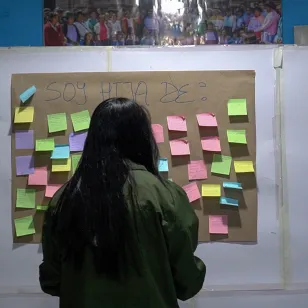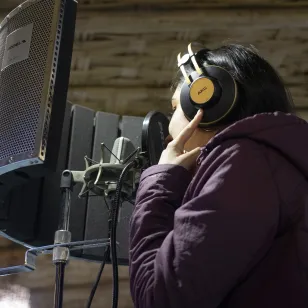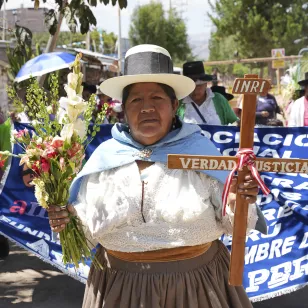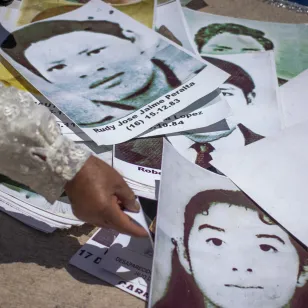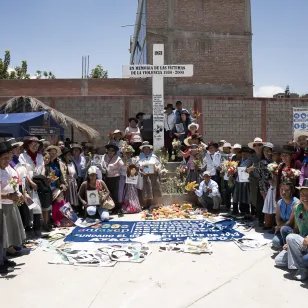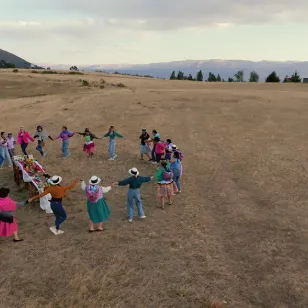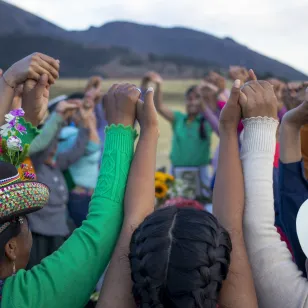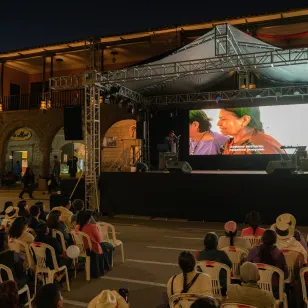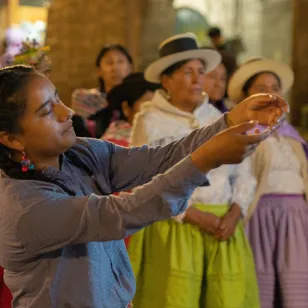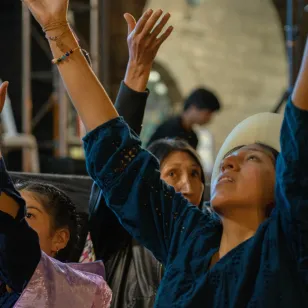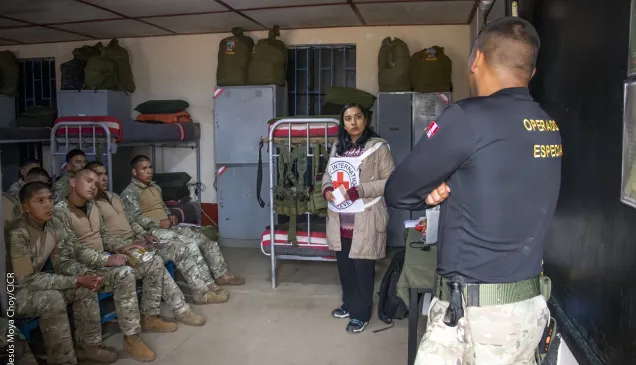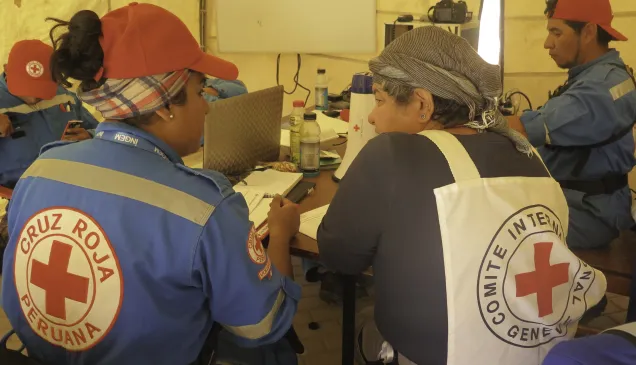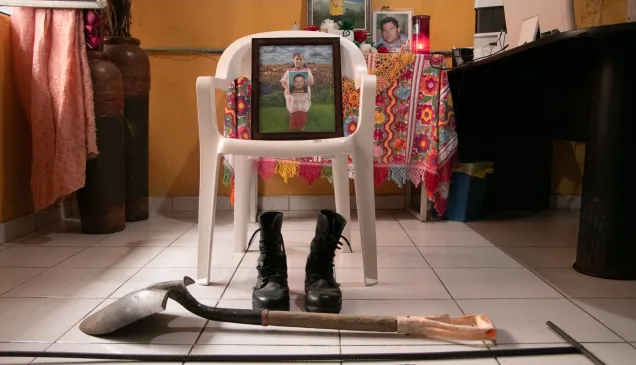Good news: Transforming pain through song
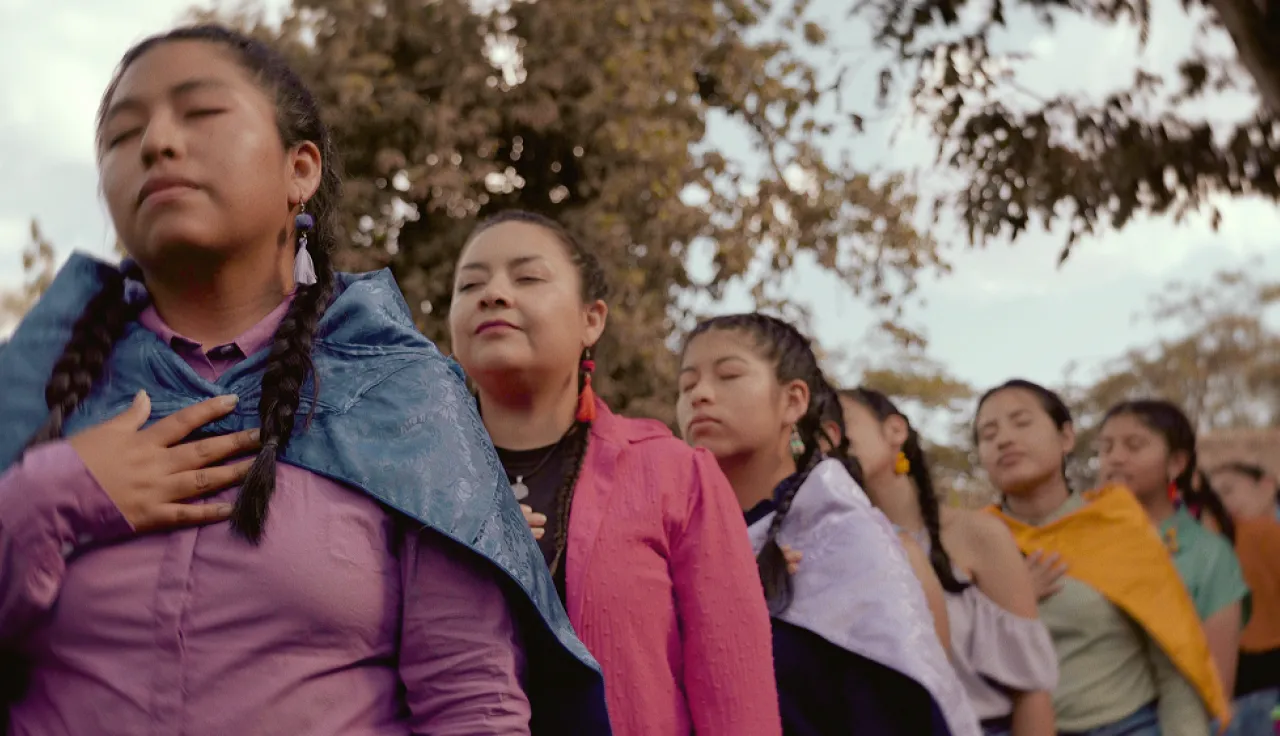
The fourth edition of Good News: Daughters and Granddaughters of Ayacucho was held on the main plaza of Ayacucho, Peru, on 10 December 2024, as part of events marking International Human Rights Day. Young people (under 30) mingled with their mothers’ and grandmothers’ generations, feeling their force and vitality. There was a music festival featuring the beats of new generations of artists, such as Kayfex, Söfy, Wari Willka, Dayyam González and Nazareth. It was also the premier of a song and music video entitled Good News: Daughters and Granddaughters of Ayacucho.
The song, written in a mix of Quechua and Spanish, honours families directly affected by the violence in Peru between 1980 and 2000, commemorating their decades of tireless searching and taking up their cause. It was produced by Kayfex (winner of a 2023 Latin Grammy), with main vocals by Söfy, a singer from Ayacucho, and a chorus of young women participating in the Good News project.
Good News: Daughters and Granddaughters of Ayacucho combines artistry with the emotions of families of people who went missing in Peru between 1980 and 2000, paying tribute to their tireless search. It was started by the “Sala de parto” programme of the Plaza Theatre and the International Committee of the Red Cross (ICRC) and brings 13 young women whose relatives were victims of the violence together with activists from human rights organizations, such as the Peruvian association for families of people who have been kidnapped, detained or disappeared (ANFASEP); Ñuqanchik; and the peace and reconciliation project of the Ayacucho Loyola Centre.
Various creative workshops were held with a mix of these groups and individuals, which culminated in writing, recording and producing the song and filming the music video. The idea came out of a discussion among young women from Ayacucho organized by the ICRC on the issue of missing people. The women wanted to express their commitment to finding answers and explore other topics related to their own activism. They first presented their project at the Hoyada Sanctuary, as part of an event held by ANFASEP on the Day of the Dead.
One line of the song is “ñuqanchik qanwan kachkanchik” (“we are with you” in Quechua). It is short, but significant: Ayacucho is the region of Peru that was most affected by the violence, Quechua is the language that has been spoken there and passed down orally for generations, and Quechua speakers were the hardest hit by the violence.
This song not only shares good news with loved ones who are no longer physically present, it also allows generations to join hands in order to overcome adversity and move forward together. The musical arrangement includes instruments and sounds from the region’s indigenous music, and the video visits emblematic sites, such as the Ayacucho Pampa Historic Sanctuary, where there is a monument to the battle that secured Peru’s and South America’s Independence 200 years ago.
Artistic activities like this can be a powerful tool for rebuilding and creating emotional resilience, particularly in cases of ambiguous loss – when a loved one disappears leaving behind a void without clear answers for their families and communities. Through song and the movements of their bodies, the participants were able to honour those who are no longer with us and make their absence visible, as well as express the positive things that have happened to them and their families in the meantime – transforming their pain into an act of collective resilience.
Good News: Daughters and Granddaughters of Ayacucho
General Production: International Committee of the Red Cross (CICR)
Artistic Production: Teatro La Plaza and Sala de Parto

